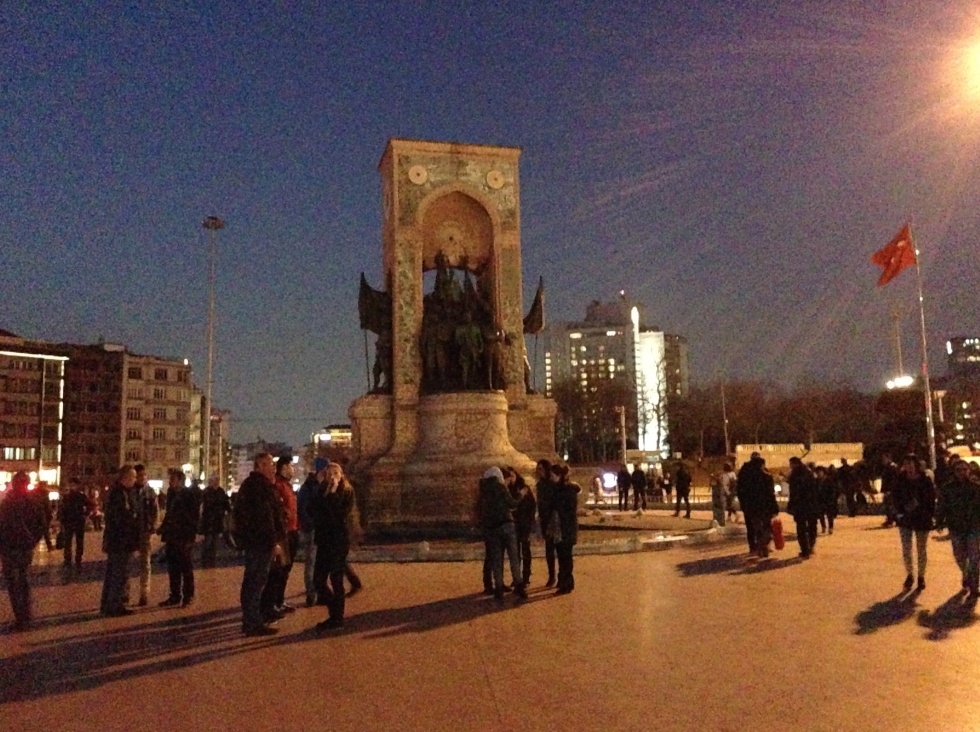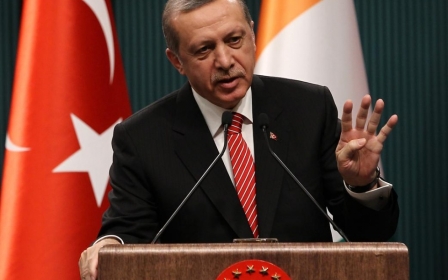Turkey's power outage reinforces political polarisation

ISTANBUL - The massive blackout in Turkey on Tuesday had an unprecedented effect on the daily lives of Turks. The biggest power failure in the last 15 years, according to the Ministry of Energy, left millions of people in the dark and cold.
Ten hours after the first outage, the power supply was restored almost everywhere in the country, but satirical news and rumours about plausible explanations for the outages kept the netizens busy all day long.
The satire and plausibility of conspiracy theories have some substance: on a similar instance during 30 March 2014 local elections, the power failure in the capital city of Ankara and in several other cities during the counting of votes produced rumours of electoral fraud. The energy minister Taner Yildiz later put the blame on a cat walking into a transformer unit.
In a neck-and-neck competition between the Justice and Development Party (AKP) candidate and long-serving mayor of Ankara, Melih Gokcek, and main opposition Republican People's Party (CHP) candidate, Mansur Yavas, the outage was widely criticised as the government's fraudulent attempt to retain the municipality. Counting the votes under candlelight in many parts of the city, once again, Gokcek was the winner.
Speculations and credibility problem
The first round of speculation appeared in relation to the 2014 experience. Government critics pointed out a potential fraudulent operation on the eve of the general elections in June. One Twitter user ridiculed the government for rehearsing cuts to power transmission units.
Another Twitter user and a journalist at government-leaning media warned that everybody should be very careful about the "parallel structure" before the elections, referring to the US-based Turkish cleric and his movement, which is allegedly working to shake up the AKP government.
As of Tuesday evening in Turkey, neither the Energy Ministry nor the Office of the Prime Minister made an official statement on the real cause of the outage. Though the most common explanation is a massive failure of the high voltage energy transmission lines, Prime Minister Ahmet Davutoglu announced that they are considering all possible scenarios, including a cyber attack on the energy lines.
Nesimi Aykan, a lawyer in Istanbul, said no one had a clue about the reason. "Is this a cyber attack or a massive malfunction? Is it related to international transmission grids or current energy policies?" he asked. "No one believes what the ministry says and this is partly because [of] how the government has handled similar cases in the past," he told Middle East Eye.
For Bahri Eliacik, a recent university graduate, the government's falling credibility is the main reason why people speculate and develop conspiracy theories. "The political polarisation persists in every single issue, as we have seen today," he told MEE.
"If this is a cyber attack, then the government should and would do something about it. But the ongoing lack of confidence in the government should not mean that there is an ulterior scheme behind the power failure."
Nuclear energy and privatisation
The AKP government's massive privatisation efforts in the energy sector over the past few years were aimed at decreasing operating costs and increasing competitiveness. As an energy-dependent country, Turkey relies heavily on fossil fuels in electricity production and around one-third of its production depends on natural gas, which Turkey imports mostly from Iran and Russia.
Fluctuations in natural gas price and supply, as well as Turkey's complex energy game in the Middle East, put the country in a vulnerable position. But the government is planning to diversify its energy supplies and plans to build two nuclear plants to further secure its power demand.
On Tuesday evening, President Recep Tayyip Erdogan announced in Slovakia that Turkey would start planning a third nuclear plant and aim to increase its share of nuclear power to 20 percent of the country's total energy demand.
Social media users were quick to link Tuesday's nationwide power failure to the government's controversial initiatives to build nuclear plants. Especially after the nuclear meltdown in Fukushima Daiichi plant in Japan in 2011, Turkey's plans to build nuclear plants in an active earthquake zone drew much criticism from various groups.
Moreover, according to Kemal Ulusaner, the former chair of the Chamber of Electrical Engineers of Turkey, recent privatisations and varying pricing policies at each company are the main reasons behind the failure. "When systemic synchronisation [of power distribution] fails, the transmission lines have the risk of failing like in a domino effect," Ulasaner argued.
The privatisation of Turkey's entire power distribution grid was completed in 2013 and, according to Finance Minister Mehmet Simsek, "it [privatisation] enabled the state to earn more money" through taxes and privatisation earnings.
However, Cem Deniz Kut, who specialises in Turkey's energy politics at Istanbul Bilgi University, said the privatisation of distribution channels and the abundance of various agents in the power grid was, in fact, a safer way to secure the flow.
"When you have multiple companies on the grid with their own separate infrastructure, it means that one failure at one part would prevent other parts from failing. A massive outage of this kind in a multi-actor system is rather curious," he told MEE.
"It does not mean that this [massive power failure] is an outcome of a deliberate cyber attack on Turkey's power grids, but considering the Iran experience a few years ago, it does not rule out the vulnerability of Turkey's distribution channels to a potential cyber attack."
In January 2010, Iran's Natanz nuclear facility was allegedly attacked by a computer malware that affected the country's uranium-enriching centrifuges.
Middle East Eye propose une couverture et une analyse indépendantes et incomparables du Moyen-Orient, de l’Afrique du Nord et d’autres régions du monde. Pour en savoir plus sur la reprise de ce contenu et les frais qui s’appliquent, veuillez remplir ce formulaire [en anglais]. Pour en savoir plus sur MEE, cliquez ici [en anglais].




